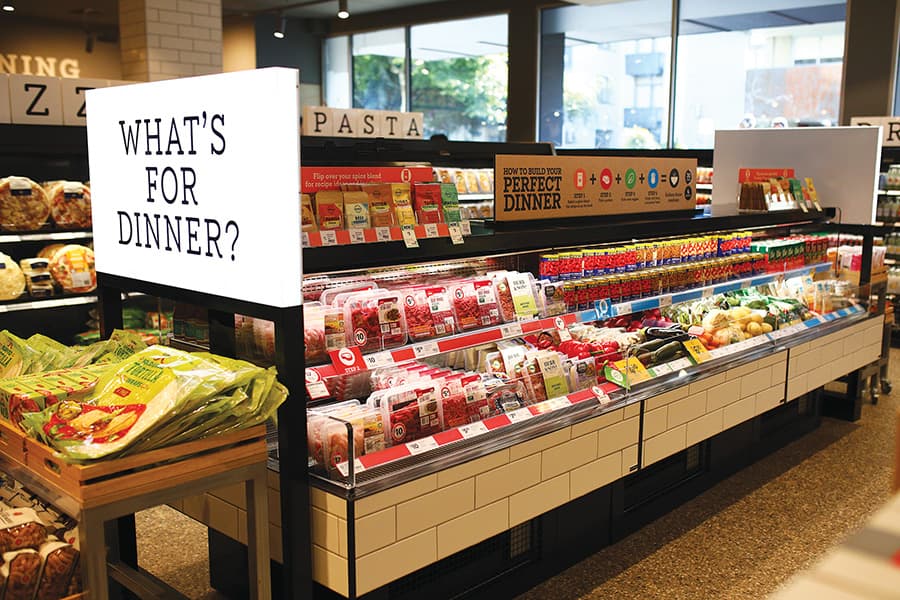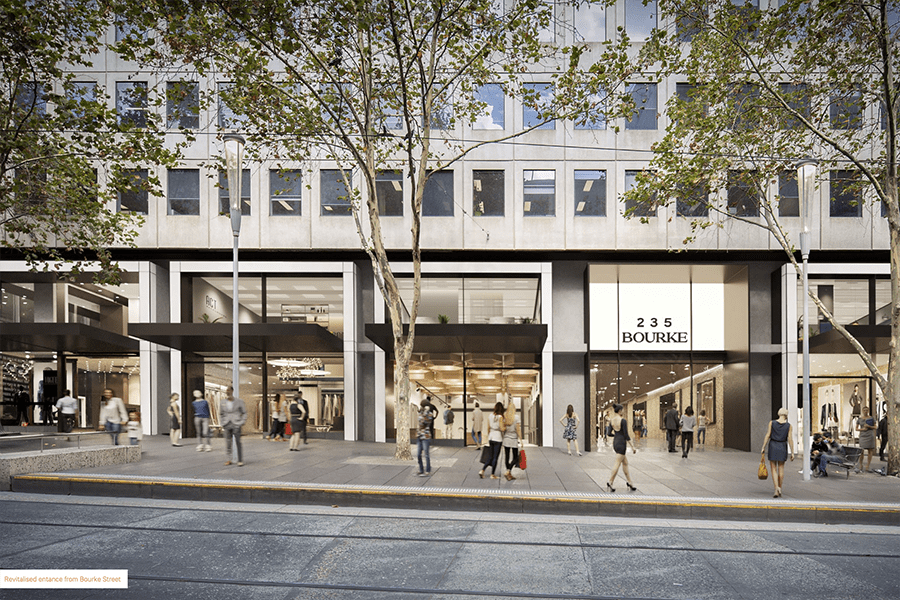
Thinus is Coles Group’s Chief Property & Export Officer and has considerable commercial experience in the retail, strategy and liquor sectors. Thinus has held various senior leadership roles at Coles since joining in 2010.
He is accountable for delivering innovation and transformation in Coles’ store network, including the development of new formats such as Coles Local. Additionally, Thinus manages key growth opportunities including the Coles Export business, as well portfolios including energy, sustainability and Indigenous affairs.
How have the COVID-19 restrictions impacted your business?
The pantry-stocking phenomenon experienced by all supermarkets is well-documented and had a positive effect on our sales for the third quarter. Volumes were up, and our supply chain team worked incredibly hard to move additional stock into our stores. This was all done without the normal six months of planning that usually goes into events like Christmas or Easter.
What are some of the challenges Coles has had to face during the past month?
We saw demand increase significantly. Our first priority was implementing rapid changes to our operating model to get as much stock on the shelves as possible with minimal disruption to our customers, ensuring we had a plan to look after all vulnerable Australians.
We mobilised a dedicated team tasked with rapidly increasing supply chain capacity, modifying in-store procedures and implementing increased cleaning and social distancing measures. All these changes required careful consideration of the flow on effects, and then had to be communicated in a matter of hours to more than 120,000 team members, about 400 landlords and some 20-million customers.
In light of these challenges, our team members have really done an outstanding job over the past two months and have truly risen to the occasion in helping to feed Australia during this crisis.
In what ways has Coles had to adapt during the COVID-19 crisis?
Australians all over the country depend on our services each week. We very quickly had to adapt our offer to meet significant challenges as a result of COVID-19.
We immediately engaged with suppliers to ensure availability as well as government and landlords to review delivery and trading hour restrictions. We’ve hired an additional 12,000 team members across the country to assist with the increased demand we saw, and engaged our team and customers to implement purchase limits. The cumulative effect of these measures meant we were able to ensure everyone had access to food and groceries.
In line with Department of Health guidelines, we’ve also limited the number of customers that can enter our stores, so we can continue to safely serve as many of them as possible. While we’ve seen challenges in implementing these restrictions, they have generally been well-received by customers.
Have all locations been trading as normal? Have you increased or reduced trading hours?
As an essential service, almost all our supermarkets, liquor stores and Coles Express sites have continued to trade, helping to feed Australians during this challenging time.
We very quickly adapted our opening hours to facilitate restocking, then introduced our highly successful Community Hour, allowing elderly and vulnerable customers, as well as emergency services workers a dedicated hour of shopping in the first hour of trade.
To support social distancing, we’ve extended trading hours and have had support from several state governments and landlords to trade on public holidays, where we traditionally hadn’t been able to before. We’re now encouraging our customers to be ‘safe, speedy shoppers’ and to move quickly through our stores so we can maintain social distancing.
What are your thoughts on the government stimulus package and JobKeeper schemes?
Coles is very supportive of any measures the government is taking to ensure the economy keeps moving during this crisis and, in turn, makes the recovery process easier when we reach the other side.
In what ways is the business currently communicating with its customers? Does social media play a role?
Coles uses all types of channels to communicate with our customers, including advertising, in-store signage, social media and mainstream media.
The COVID-19 pandemic made us pivot from using these channels for traditional marketing and sales messages, to more closely focus on messages of a community service nature. Additionally, we’ve used these channels to reach Australians and help them with home meal ideas, such as our What’s for Dinner? campaign, as well as provide important information about new social distancing measures and trading hours.
How do you think customer spend and shopper habits will change after this experience?
Our busiest days of trade are generally on the weekend, however, since the pandemic began we have seen customer visits smoothing out across the week. This is in part due to customer work schedules changing and employers offering more opportunities to work from home or outside of the traditional nine to five workday.
Online retailing will also see ongoing growth as more customers get comfortable with the idea of having goods and services delivered – something they may have experienced while in isolation. This shift will be supported by our partnership with online food retailer Ocado and the development of two highly automated fulfilment centres in Melbourne and Sydney.
How important is the company’s online presence and have you experienced an increase in online sales due to COVID-19?
The COVID-19 pandemic has made it very clear that Coles offers an essential service to the community and plays a vital role in sustainably feeding Australians. It’s for this reason that we decided to repurpose Coles Online to cater for some of the most vulnerable members of the community. Our Coles Online Priority Service (COPS) was made available to existing customers aged 70 years and over and to other vulnerable groups via government departments, such as the NDIS and My Aged Care.
This service, along with our Coles Community Box, were a huge help for many in the community who may have been in lockdown or unable to make it to a store.
How important is the role shopping centres play in providing essential services to the wider community?
A shopping centre is a safe, one-stop option for everything customers need. In light of current circumstances, shopping centres are also acting as a community hub where people can go and complete their weekly shop to regain a sense of normalcy in their lives.
Are there any stand-out ‘acts of kindness’ you have witnessed from the industry?
Our landlords have worked collaboratively with us to ensure we can continue to provide an essential service to the community; their support and responsiveness have been outstanding! For example, we’ve had multiple landlords head down to the local hardware store to pick up tape and bollards – helping our store teams to manage customer numbers as we implemented social distancing measures.
We’ve also had countless examples of selfless acts of kindness from our team members who have done an outstanding job supporting our customers and each other during this time.
What are some of the positives you can take away from this experience?
We’ve seen examples of customers bringing our team members gifts and going out of their way to thank them for their incredible efforts. I hope that some of the kindness we’ve seen from members of the wider community continues once these events subside. Additionally, this experience has allowed us to spend more time with family and loved ones, while making sure we are looking out for vulnerable members of the community at the same time.
Coles’ purpose to sustainably feed all Australians to lead healthier, happier lives has never been more relevant and if we all continue to all look out for each other, I know we can get through this together.





















